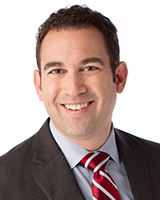Senator Feinstein asks tech companies for help in battle against terrorism


SAN FRANCISCO (KGO) -- U.S. Senator Dianne Feinstein slammed Silicon Valley. The Chair of the Senate Intelligence Committee said tech leaders are in effect helping terrorists by failing to stop them from using social media to coordinate attacks.
Feinstein released a statement saying: "I have met with the chief counsels of most of the big companies. I have asked for help and I haven't gotten any help."
PHOTOS: World landmarks light up in red, white and blue for Paris
On one side you have Americans who want privacy form their government and the other side you have a government that says it can't protect Americans unless you hand them the keys.
The intelligence world calls it going dark, which is like communicating in cyberspace without leaving a trace. "I'm very interested to see what phones they were equipped with, what type of apps they had on those phones," New York City Police Commissioner William Bratton said.
They might not have needed anything special. "Well iMessage in the Apple iPhone is encrypted. I believe many of the communications in Facebook are now encrypted," UC Berkeley School of Information Prof. Steven Weber said.
The concern is so-called end-to-end encryption where messages are scrambled so not even Apple, for instance, can read them.
VIDEO: Mother speaks of CSULB student killed in Paris terror attacks
It's become far more common since Edward Snowden revealed the government was siphoning data from American tech companies. "In the U.S. we are not fans of the government looking over everyone's shoulder all the time and essentially that's what encryption prevents," Electronic Frontier Foundation spokesperson Jeremy Gillula said.
But for years, the intelligence community has argued for a back door, a way for the NSA to get in and flush the bad guys out. "It's got to stop and we have to have the mechanism to fight back," Feinstein said.
Tech companies have begun siding with privacy advocates. "A back door doesn't know who's accessing it. If you put a master key in there, you know for sure that is going to be the target of every hacker on the planet," Gillula said.
But Weber said a government master key is not unprecedented. "Even the TSA requires you to have TSA approved locks on your luggage. You can lock your luggage, but you can't lock your luggage in a way the government can't look at it if it needs to," he said.
Terrorists continue finding new ways to communicate even burying their messages in online video games. "People will find a way to communicate secretly if they want to. The question is whether or not we should make it really easy for them to do so," Weber said.
The attacks have many major US cities re-assessing their anti-terrorism measures.
In San Francisco, you will now see a noticeable presence of uniformed police officers in high traffic areas.
While the National Park Service issued a statement Monday saying it has increased patrols, the NFL is beefing up security at games with more officers on patrol, just as they were at Oakland's O.co Coliseum during the Raiders game on Sunday.
Students at Cal State Long Beach paused Monday at a memorial for classmate Nohemi Gonzalez who was killed in Friday's attack. The 23-year old from Southern California was an industrial design student and was studying abroad in France.
San Francisco State University will hold a vigil in the Malcom X Plaza at 5 p.m. on Tuesday in honor of Gonzalez and all victims of violence.
The attacks interrupted many conventions in Paris that Americans were attending.
While many said they felt safe, they were glad to be home.
For full coverage on the Paris attacks, click here.













